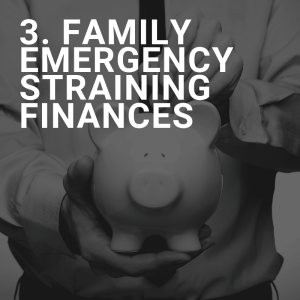5 Tips to Avoid Popular Loan Scams
It Is impossible to live and do business in Canada or anywhere else without the possibility of exposure to some type of fraud. A few tips to lower the risk of being a victim to unscrupulous people posing as lenders:
1. Borrowers should never give out bank account numbers in advance. This information should be provided when the lender has been thoroughly cleared as a bona fide creditor.
2. Loan scammers commonly copycat the name of an existing lender. A dead giveaway of this tactic is if the web address name is different and the email addresses do not have an extension with the company name.
3. Consumers should always verify a lender before accepting a loan offer using resources like the Better Business Bureau, consumer protection agencies, and the State Attorney General’s Offices in the United States.
4. Sometimes, reassessing a financial situation may uncover that the issue can be put off until cash is available. When real financial emergencies do arise, there may be other solutions like borrowing from relatives, loans against retirement accounts or employer pay advances.
5. It is important to stay alert to any suspicious activity by monitoring credit, changing all passwords regularly, and checking bank and credit accounts frequently.
Unfortunately, Canada and most other countries in the world are rife with “big bad wolves” that prey on innocent victims who are merely trying to get themselves out of some type of financial bind. They use whatever means they can to reel people into a scam with fake promises of hassle-free approval, low payments, and little or no interest. But the alert borrower recognizes fact from fiction, resulting in a happier ending.




